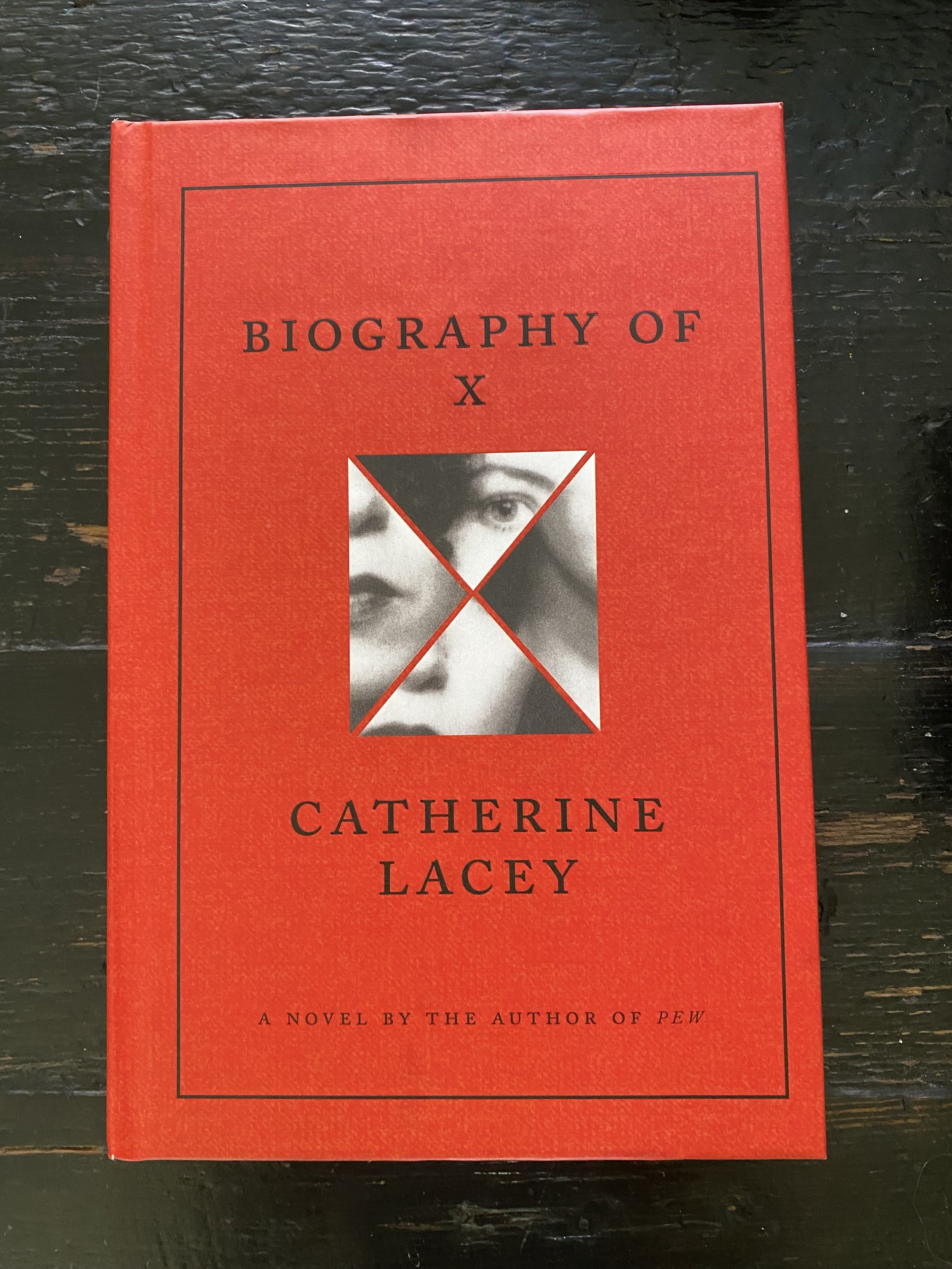5/5 stars
What's it about? In response to a flawed biography of her late wife, grief-wracked C. M. Lucca aims to set the record straight by investigating the secrets of her spouse, the enigmatic artist of many faces known to her as X. Do we need to know someone to love them? How does one reconcile their lived experiences with others’ truths? And do they matter? A form-defying novel that elegantly scratches at lofty questions.
How’d I find it? I stopped in at Kramers after pouring rain interrupted a walk and lo!
Who will enjoy this book? Percival Everett readers might like Lacey’s playfulness with form and sampling of media, as Biography of X is a veritable bird’s nest built from scraps of other artists’ work and interviews. Fans of A Handmaid’s Tale will be interested in the Gilead-esque Southern Territory of Lucca’s America. Looking for a read-alike? The closest in my repertoire is Delphine de Vigan’s Nothing Holds Back the Night, far less ambitious but equally beautiful.
What stood out? I respect writers who just go for it, who push their creativity into new and risky territory. Lacey does so much with Biography of X. Yes, it’s a love story, a biography, a widow’s lament, and a satire of the contemporary art scene, which would have been task enough. But Lacey also layers in a historical account of an America fractured into literal pieces by its politics, the perfect landscape for the book’s questions to marinate. The endnotes are a treasure trove, offering a peek into Lacey’s process. They reveal X as an amalgamation of Susan Sontag, Kathy Acker, and David Bowie, among other personalities, and a disparaging review of one of X’s books as an actual review of a novel of Lacey’s (“more depressing than The Bell Jar” — I laughed out loud).
Which line made me feel something? From the chapter “Sante Fe”: “I felt all our years together mounting up in me, full of things, full of words, positively saturated with sentences spoken that were meant to vanish immediately, or sentences spoken that were meant to stand forever, words we gave each other to explain ourselves, words that were misunderstood, words we stole, images we held in private, moments made significant to one and not the other or to the other and not the one, two realities pressed against each other, stupid impossible human points of view, views of nothing, conflicting views, incomplete views, impossible to reconcile, impossible to forget.”









